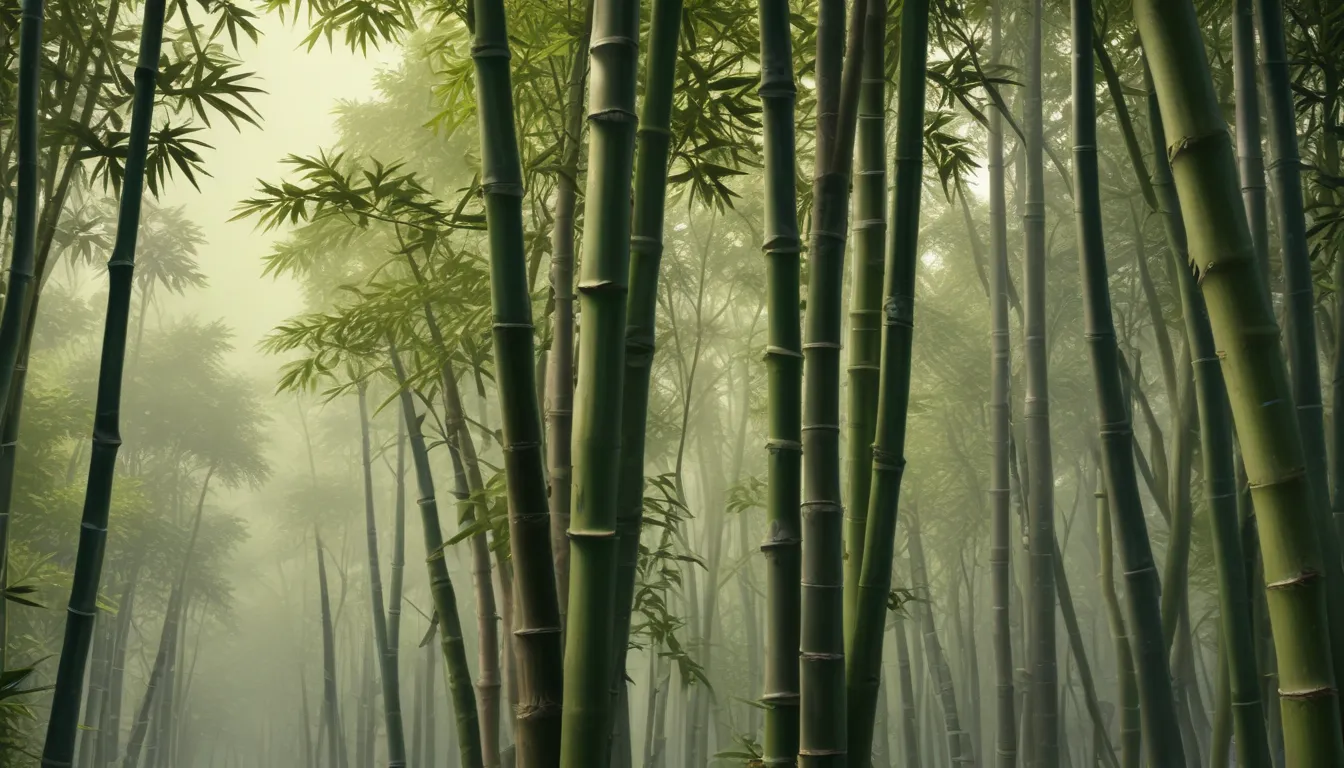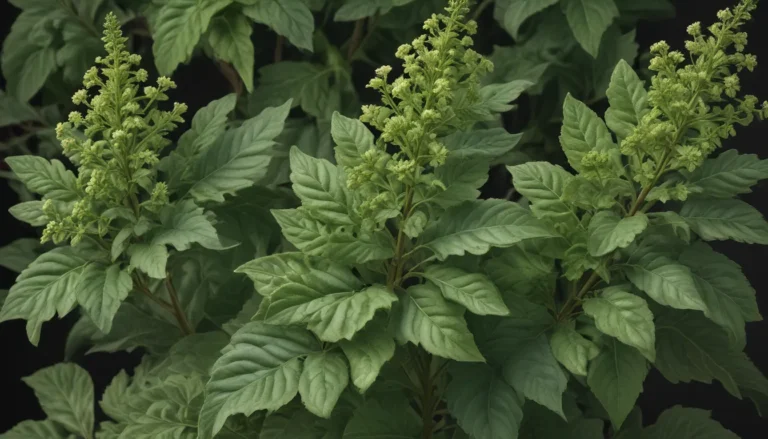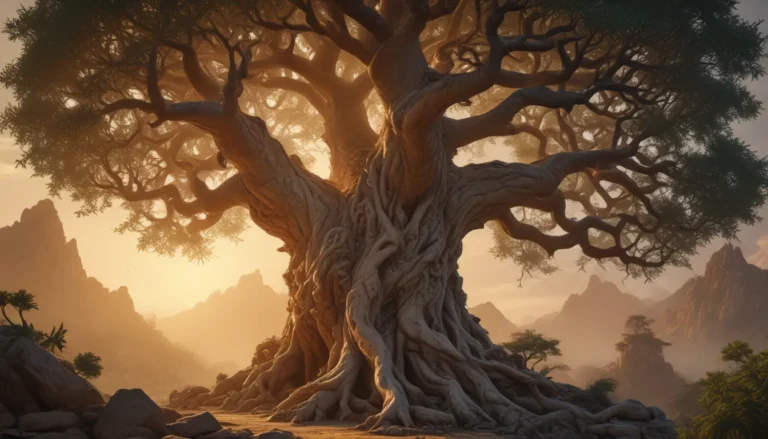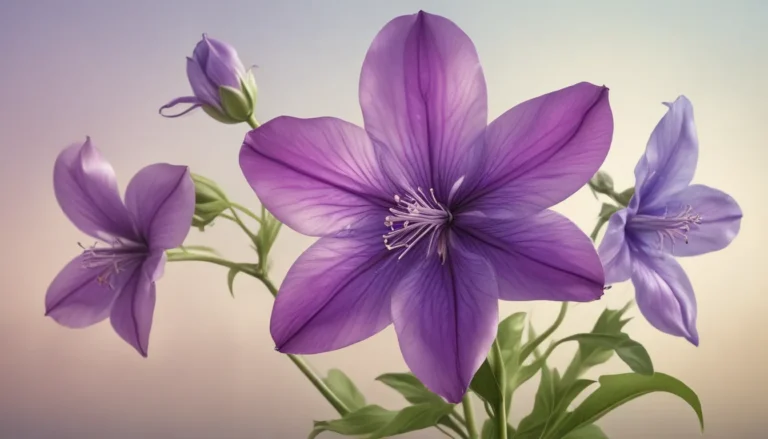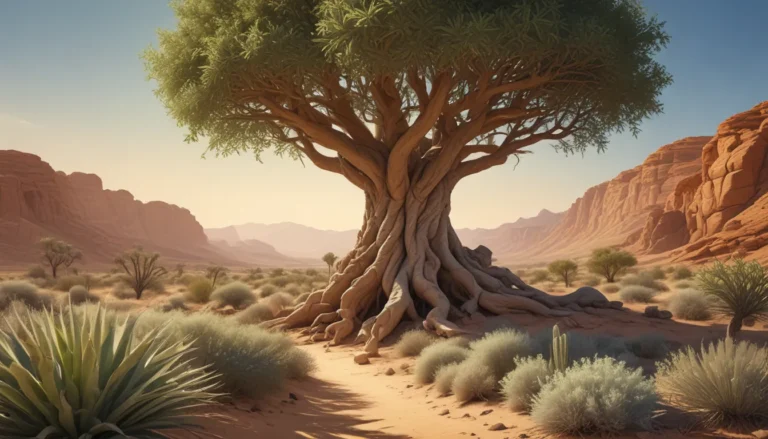The pictures we use in our articles might not show exactly what the words say. We choose these pictures to make you interested in reading more. The pictures work together with the words but don’t take their place. The words still tell you the important facts.
Bamboo, with its elegant and tall stature, has captivated human interest for centuries. This versatile plant, a member of the grass family, boasts extraordinary qualities that differentiate it from other plants and have intrigued nature enthusiasts, architects, designers, and sustainability advocates alike.
Exploring the Fascinating World of Bamboo
In this article, we will delve into the astonishing world of bamboo and uncover 14 captivating facts about this incredible plant. Get ready to be amazed by the myriad of uses, the environmental benefits, and the cultural significance of bamboo. Whether you have a green thumb or simply enjoy learning about the wonders of the natural world, you will be captivated by the incredible attributes of bamboo.
Key Takeaways
- Bamboo grows at a remarkable speed, is stronger than steel, and releases abundant oxygen. This amazing plant has diverse uses, from fabric to energy production, and holds symbolic significance in various cultures.
- Amidst over 1,000 species, bamboo stands out with its natural antibacterial properties. This ancient plant, with roots dating back thousands of years, exhibits strength comparable to concrete when compressed.
Bamboo: The Fastest Growing Plant on Earth
Bamboo holds the Guinness World Record for being the fastest growing plant, capable of growing up to 35 inches (91 centimeters) in just one day! Its rapid growth makes it a highly renewable resource, contributing to its sustainability.
Bamboo’s Exceptional Strength
Despite its lightweight appearance, bamboo possesses a higher tensile strength than steel, making it a remarkably versatile material for construction and manufacturing. This strength, coupled with its flexibility, has led to its use in various industries.
The Diverse World of Bamboo: Over 1,000 Species
With over 1,000 known species, bamboo is a diverse plant that thrives in regions across the globe, from Asia and Australia to Africa and the Americas. Each species exhibits unique characteristics, contributing to the plant's versatility.
Environmental Champion: Oxygen Production
Bamboo is a powerhouse in oxygen production, releasing 30% more oxygen into the atmosphere compared to other plants. This makes it a valuable asset in combatting air pollution and enhancing the quality of the environment.
Natural Antibacterial Properties of Bamboo
Due to its inherent properties, bamboo possesses antibacterial and antifungal agents, making it an ideal material for various products such as cutting boards, kitchen utensils, and clothing. This natural resilience against bacteria adds to its appeal in hygiene-conscious industries.
Surpassing Concrete: Strength Through Compression
When compressed, bamboo has the potential to exceed the strength of concrete. This remarkable property has elevated its use in the construction industry, particularly in building sturdy and earthquake-resistant structures.
Versatile Bamboo: The Fabric of Choice
Bamboo-derived fabric has gained popularity for its softness, breathability, and moisture-wicking capabilities, making it ideal for clothing, bedsheets, towels, and bathrobes. This sustainable textile choice offers comfort and durability.
Renewable Energy Source: Harnessing Bamboo’s Power
Bamboo can be harvested and utilized as a source of renewable energy, thanks to its high calorific value. This makes it a promising biofuel alternative to fossil fuels, aligning with efforts towards sustainable energy sources.
Towering Heights: Some Bamboo Species Reach 100 Feet
While commonly associated with smaller plants, certain bamboo species can soar to heights of up to 100 feet (30 meters) or more, showcasing the plant's diverse morphology and versatility.
Symbol of Fortune: Bamboo in Cultural Significance
Across various cultures, bamboo symbolizes good luck, prosperity, and strength, often incorporated into traditional ceremonies and beliefs. This cultural significance adds a layer of mystique to the already fascinating plant.
Culinary Delight: Bamboo Shoots in Asian Cuisine
Bamboo shoots are a staple ingredient in Asian cuisine, imparting a distinct texture and flavor to dishes through methods such as stir-frying, steaming, and inclusion in soups and stews. The culinary versatility of bamboo enhances its appeal.
Harmonious Melodies: Bamboo Musical Instruments
Bamboo's flexibility and resonant qualities make it an ideal material for crafting musical instruments like flutes, clarinets, and saxophones. The plant's natural attributes enrich the music produced by these instruments.
Natural Pest Resistance: Eco-Friendly Farming
Containing a natural bio-agent called “bamboo-kun,” bamboo repels pests and insects, offering an eco-friendly alternative to chemical pesticides in farming and gardening. This natural defense mechanism highlights bamboo's sustainability and low environmental impact.
Timeless Utility: Bamboo’s Ancient Origins
Dating back thousands of years, bamboo has been utilized for construction, medicine, art, and everyday items across various cultures worldwide. Its enduring presence showcases its adaptability and enduring appeal.
Conclusion: Embracing the Marvels of Bamboo
In conclusion, bamboo stands out as a truly remarkable plant with numerous astonishing qualities. Its rapid growth, exceptional strength, and diverse applications make it an invaluable resource across industries. Furthermore, bamboo's environmental benefits underscore its importance in sustainable practices, contributing to a greener future. Whether in construction, fashion, or cuisine, bamboo continues to inspire with its endless possibilities and enrich our lives in manifold ways.
Frequently Asked Questions
-
How fast does bamboo grow?
Bamboo is renowned for its rapid growth, capable of growing up to three feet in 24 hours under optimal conditions. -
Is bamboo a sustainable resource?
Yes, bamboo is highly sustainable due to its fast growth rate, low water requirement, and regenerative root system. -
Can bamboo be used for building construction?
Absolutely! Bamboo's strength, flexibility, and high tensile strength make it an excellent construction material. -
Can bamboo be used as a renewable source of energy?
Yes, bamboo can be converted into biofuels such as charcoal and biogas, serving as a renewable energy source. -
Is bamboo a type of wood?
No, bamboo is classified as a type of grass, despite sharing similar properties with wood, earning it the moniker "wooden grass." -
Can bamboo be consumed as food?
Yes, young bamboo shoots are edible and commonly used in various Asian cuisines for their unique flavor and texture. -
Does bamboo possess medicinal properties?
Certain species of bamboo have been explored in traditional medicine for their potential antibacterial, antiviral, and anti-inflammatory properties. -
Can bamboo be integrated into fashion industry?
Indeed! Bamboo fibers are utilized to create luxurious fabrics known for their softness, eco-friendliness, and moisture-wicking properties. -
Does bamboo require extensive watering to grow?
No, bamboo requires minimal irrigation compared to other plants, thriving with modest water supply. -
Can bamboo be cultivated indoors?
Certain bamboo species can be grown indoors as decorative plants, provided they receive adequate sunlight and water.
Embracing Quality and Authenticity
Our commitment to delivering informative and engaging content is rooted in trust, ensuring that each fact shared is credible and captivating. Real users like you contribute to the wealth of insights and information we provide, allowing us to maintain the highest standards of accuracy and reliability. Explore and learn with us, with the assurance of our dedication to quality and authenticity in every piece of content shared.
